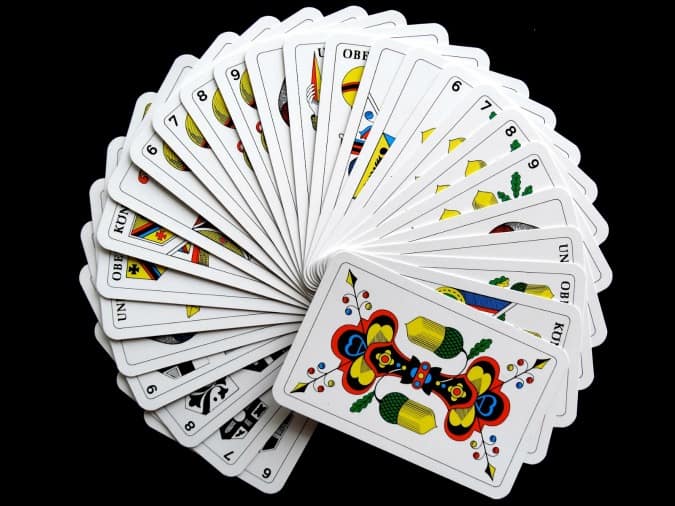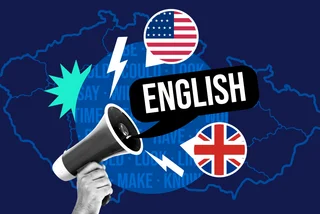There is one simple rule upon which proficiency in Czech, or any other language for that matter, hinges: Speak it often. And fearlessly. What else can you do to improve your Czech language skills in 2018? This round-up of practical advice from our users and article archive can help:
Tips from our readers:
- “Language courses can provide you with a good base but most of the work has to be done by yourself – write e-mails in Czech, read Metro while travelling to work, watch Czech films, don’t leave your house without a dictionary and ask a lot of questions.” –Denisa S. (CZ)
- “I started to map Czech’s noun declination through prepositions, e.g. I made a group of all prepositions that take, e.g. the second case – od, do, z, the English equivalent for ‘of’, podle, kolem, okolo, etc., and tried to look for patterns in the endings of nouns” –Sky K. (US)
- “In my experience, one of the best ways to learn Czech (after going through a basic grammar book) is to listen as much as possible to the radio. It helps with pronunciation, intonation, and vocabulary-building.” –Erik B. (US)
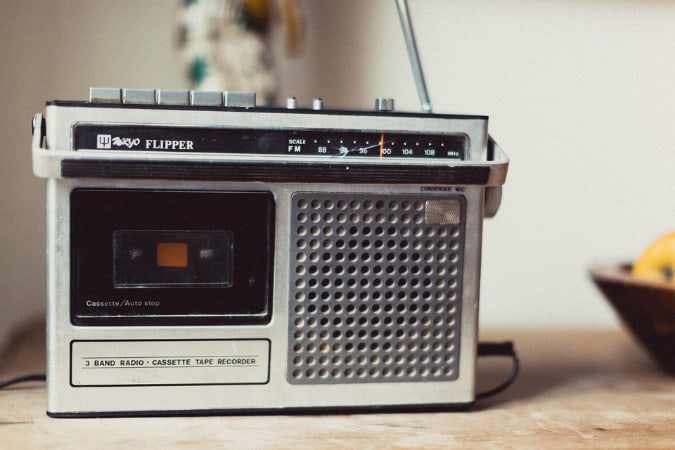
- “I made large A1 poster charts of all of the grammar and examples and placed them on my wall to be viewed daily.”-Brett I. (US)
- “What helped was trying to find ‘similarly’ sounding words in Norwegian. For example, the closest I got in Norwegian to zoufalý was “så farlig” (pronunciation here not as in written) meaning “so dangerous”. Then I also remembered the sound and the real meaning of that word.” –Yngve L. (NO)
- “Remember words by making full use of mental and visual associations. The more personal, the better. Random example: hnůj (dung, manure) reminds me of “annoy” which is what manure can do.” –Melvyn C. (UK)
- “I kept lists in notebooks that were roughly thematic, or specific to an area. I think the key to a good vocabulary is really trying to use some of the words in normal situations. If it just sits on your list, it probably won’t ever make its way into your active vocabulary.”-Sky K.
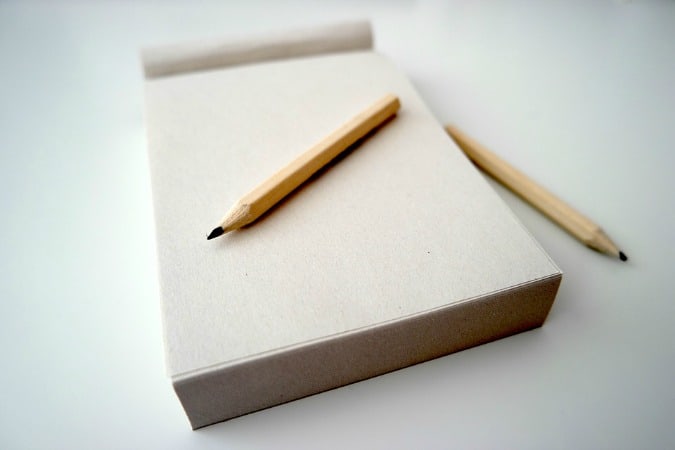
- “I used to go around to the shops at Luka and Paprsek (at Stodulky metro), and practice all kinds of different, Czech phrases. It was a lot of fun, and the Czechs were shocked that I came in and said random things.”-Bill G. (US)
- “I repeated quite a bit at an early stage, both to myself and others until they would say it sounded good. The “chosen” words were usually short but difficult, such as čtyři.”-Tom-Henrik M. (FI)
- “I used to have difficulties with the soft sounds that require the flat of the tongue (not the blade) to lie against the roof of the mouth: Ď, Ť, Ň. Then we found a dog and called her Ťapka. Soon sorted me out.” –Melvyn C.
- “Meeting the language, in reality, wasn’t enough for me. I needed the course to actually start to learn.”-Tom-Henrik M.

- “I talked to myself out loud continuously with what I wanted to say before I said it. I also repeated the words and phrases as I heard Czechs pronounce them, not what was learned in the classroom.” –Brett I.
- “Practice is key but IMHO it can be overdone. I am convinced you can burn out if you are concentrating every hour of the day. I have known students who did intensive courses and then collapsed in a heap and did nothing at all for days or weeks on end.” –Melvyn C.
- “I always (ALWAYS) used the words and phrases I knew when I had the chance.” –Brett I.
- “Integrate Czech phrases into your daily ‘inner monologue’, when you comment to yourself on things happening around you or imagine conversations you will/could have with people” –Yngve L.
- “I have also found for myself at least that learning a language, just like other frustrating things like quitting smoking or playing a musical instrument, is not just about being stubborn, but also rewarding yourself.”-Sky K.
Tips from our article archive:
- Read children’s books. Did you know that reading exposes you to more sentences per minute than watching television or films? Start with children’s books, especially ones you know well in your native language. Audiobooks with accompanying text will help acquaint you with Czech cadence.
- Decide if you’re a visual or aural learner and proceed accordingly. Aural learners should focus more on listening to Czech and reading it aloud. Labeling and writing things may be better learning techniques for visual learners.
- Always (really, always!) carry a dictionary. From billboard ads to cafe menus, look up any unfamiliar words as soon as you encounter them. Once you’ve learned a new word, use it right away and repeatedly. Carry a notebook, too, for faithfully jotting down all of that new vocabulary!
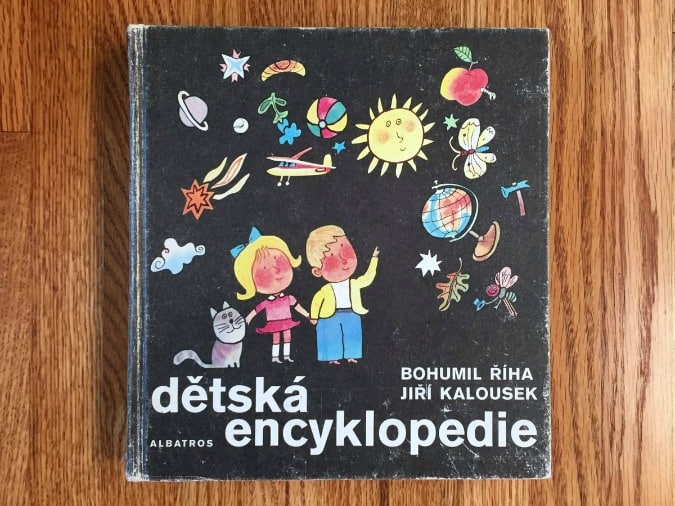
- Host or attend a Czech games night.Board games and card games build vocabulary, grammar, familiarity with common expressions, numbers, counting, colors, and more. Try a traditional Czech game like Prší, commonly played in pubs.
- Do a daily power hour. Study intensively, for at least an hour daily. Like an exercise regimen, if you can’t manage to fit in a full 60-minute block of time, it’s perfectly fine, and may even prove more productive, to break it down with vocabulary in the morning, writing in the afternoon, and listening in the evening for a total of one hour.
- Label every last surface. Not only will doing so improve your vocabulary, but labeling works for verbs as well (truly the most crucial part of the sentence, along with proper word endings; use these correctly and you’ll be understood much better). Mark your TV “televize” with “Dívám se na televizi” written beneath.
- Memorize keywords and phrases. Phrases like “Jak se řekne…?” (How do you say…?) and “Co znamená…?” (What does … mean?) are gold to non-native speakers. Use them, and others, repeatedly until they are firmly anchored in your head. Learning the 100 most common Czech words and Cz-Eng cognates will boost your Czech, too.
- Make phone calls in Czech. Ask your Czech-speaking teachers, friend, or colleges to give you a ring instead of the usual SMS or e-mail (though texting and writing e-mail in Czech is great practice, too). You’ll not only enhance your listening skills but be forced to express yourself without relying on hand gestures and other non-verbal forms of communication.
- While you’re at it, switch your phone settings to Czech. Anything that forces you to think, read, and write in the target language will undoubtedly encourage your developing Czech skills. Changing the settings on your computer—though frustrating at first—will have the same effect.
- Facebook, too! Switching your Facebook language settings to Czech will, through repetition, teach you common phrases like “To se mi líbí” (I like it) while enabling you to observe many varieties of declinations and conjugations. You’ll also get used to thinking in the target language.
- Adopt the local body language. 50-80% of all communication is non-verbal. Learning common Czech hand gestures, and paying attention to things like volume and intonation will also help you communicate better. That means ordering “dvě piva” with your thumb and forefinger, not the index and middle one, for example.
- Date a Czech. By far one of the most fun ways to improve your Czech skills is to make a date with a Czech, preferably one with plenty of patience. Romantic encounters not only serve to foster foreign language learning, they also get you out of the expat bubble,a common hindrance to learning Czech.
- Give yourself a good talking to. Practice dialogues or monologues at home alone in front of the mirror or even on public transport; read aloud from a Czech book or magazine for pronunciation practice, too.
- Shop, cook, and dine in Czech. Write your grocery list in Czech; browse food magazines for simple recipes to try (not only is this a good way to practice food vocabulary and associated verbs, but you’ll also use the genitive case repeatedly). Devote one meal a week to Czech table chat with family or friends.
- Stop thinking in English. Constantly translating everything back into English is sure to hinder your progress in Czech. While it’s great that you know that “table” is “stůl”, it’s even better to know that “stůl” is where you’re eating breakfast. Imagine the thing itself, not the word. Once you stop thinking in English, you will be on your way to fluency!












 Reading time: 6 minutes
Reading time: 6 minutes 



